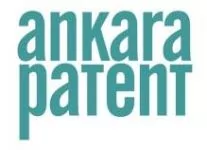Upon an application based upon the alleged abuse of dominant position by Nadirkitap Bilisim ve Reklamcilik A.S. by refusing to disclose the required data to its seller members wishing to market their products via its internet site at the address of www.nadirkitap.com, thereby making it difficult for competing undertakings to carry out their business activities, the Turkish Competition Board has first conducted a preliminary survey, and then started an investigation upon obtaining serious and adequate findings as a result of its preliminary survey. The investigation is focused on determining whether Article 6 of the Law on Protection of Competition no. 4054 is breached thereby or not.
As a result of negotiation of the case file contents, on 07.04.2022, the Competition Board announced that Nadirkitap Bilisim ve Reklamcilik A.S. has abused its dominant position as defined in Article 6 of the Law no. 4054 by precluding its seller members from accessing to the book data uploaded by them into www.nadirkitap.com, and preventing the portability of said data, without any valid and reasonable ground, and for this reason, the Competition Board has decided to impose an administrative fine on the said undertaking.
Nadirkitap is an e-commerce site where second-hand books are offered for sale, and a platform providing hosting service to its seller members. This platform allows buyers to make comments about and give points to shopkeepers being its members, and the dispute has arisen exactly at this point.
Seller members of Nadirkitap request Nadirkitap to provide them with the data regarding comments made and points given to them in their own sites, but Nadirkitap refrains from providing such data. Under these circumstances, may the intention of Nadirkitap underlying its preventing transportation of data without a valid and reasonable ground be to prevent the transfer of such data into a competing platform? If the answer to this question is yes, will this act be considered and treated as an abuse of dominant position by making it difficult for competing undertakings to carry out their business activities?
Let's now list the points examined during the investigation:
- Whether Nadirkitap is in dominant position in the related market or not; and
- Who is the owner of subject database (seller member or e-commerce site); and
- Whether said data are provided by Nadirkitap to seller members or not, and whether Nadirkitap makes it difficult for competing undertakings to carry out their business activities or not.
Under these circumstances, we may ask the following question: does to hold only the intellectual property right provide the owner with a dominant position, or in some exceptional cases, does to assert and plead copyright lead to abuse of dominant position? Because aside from being the sole proprietor of source, if it is not also possible for third parties to create the same work or data without a consent of the data owner, then, a monopolisation will have arisen. EU Database Directive envisages that under such circumstances, national competition law provisions pertaining thereto may be enforced.
For instance, against refusal by the British TV companies ITP and BBC and the Irish TV company RTE to permit the publishing of their weekly program flow-charts and lists, as a result of application of MAGILL to the Commission on the ground of breach of Article 82 of the Treaty of European Union by the related companies, the Court of Justice has held and judged that though the sole right of reproduction is a part of copyrights of the author, to hold only the intellectual property right does not provide anyone with dominant position, and thus, in some exceptional cases, to assert and plead copyright may lead to abuse of dominant position. By the Decision, given that publishers are the sole proprietor of source, their refusing the license requests without a valid and reasonable ground is seen and treated as abuse of dominant position.
The Court of Justice mentions about three criteria as bases of its decision:
1) The rejected information is indispensable for production of comprehensible television program guides, and this in turn is by nature the production of a new product which is the subject of deficit and unsatisfied consumer demand; and
2) Television companies are monopolizing TV magazine market representing a separate market segment by refusing to provide non-optional information; and
3) The act of refusal is not based upon an objective ground.
The unified decision, no. C-241/91 and C-242/91, dated April 6, 1995, may be retrieved and seen from this link.
In another case, the Court of Justice has, in its decision regarding the dispute between Ims Health and Ndc Health both collecting and editing data about sales of pharmaceuticals and medical products in Germany, defined the act of the copyright owner undertaking to prevent access to goods or services mandatorily needed for performance of a certain work as an abuse of dominant position. In its decision, the Court of Justice has held and judged that IMS abuses its dominant position because the emergence of a new product having potential demand in the marketplace is prevented, and the act of prevention is not based upon an objective ground, and competition is prevented in the sub-market.
The decision, no. C-418/01, dated April 29, 2004, may be retrieved and seen from this link.
In the Turkish law, although there is not any clear law provision as regards products characterised as works of art, in the event of abuse of ownership of database, being a technology product, in such manner to violate the proviso of Article 6 of the Law on Protection of Competition, the Competition Board may take a compulsory licensing decision, and provide the demanding entrepreneurs with the permission to make use of database. In a civil case be commenced in connection therewith, if abuse of ownership of digital database is detected, the judge may reverse the claims of database owner. Furthermore, if claimed so, the judge may also order the indemnification of damages and losses caused by abuse of dominant position.
Turning back to the dispute in hand, according to the Report, Additional Opinion, evidence and written defences collected in the course of the investigation conducted pursuant to and under the decision no. 20-54/753-M dated 17.12.2020 of the Competition Board, and statements given in the verbal defence meeting, and other case file contents examined therein, it is decided and held:
- that Nadirkitap Bilisim ve Reklamcilik A.S., the subject of investigation, is in dominant position in the platform services market acting as a broker in sales of second-hand books; and
- that Nadirkitap Bilisim ve Reklamcilik A.S. abuses its dominant position in the market as defined in Article 6 of the Law no. 4054 by precluding its seller members from accessing to the book data uploaded by them into www.nadirkitap.com, and preventing the portability of said data, without any valid and reasonable ground; and
- that because of its aforesaid acts, an administrative fine of 346,765.63 Turkish Liras be appraised and imposed on Nadirkitap Bilisim ve Reklamcilik A.S. over its 2021 annual gross income pursuant to the provisions of third paragraph of Article 16 of the Law no. 4054, and sub-paragraph (b) of first paragraph, second paragraph, and sub-paragraph (a) of third paragraph of Article 5 of the Regulation on Fines to be Imposed in the Event of Abuse of Dominant Position by Competition-Restricting Agreements, Concerted Actions and Decisions; and
- that for the sake of termination of said breach and establishment of effective competition in the market, Nadirkitap Bilisim ve Reklamcilik A.S. be ordered to freely provide the relevant seller members with all related book inventory data in appropriate format, accurately, understandably, reliably and completely, if demanded so by its seller members.
This decision is indeed in the form of a warning for all e-commerce sites, and reminds these platform owners that they cannot apply arbitrary sanctions on their members. Nadirkitap is entitled to file an application before the Administrative Court against this decision. So, we are keen about to see what type of a decision the Administrative Court will take if the dispute is escalated to court.
Nihan ÖZKOÇAK (Of Counsel)
The content of this article is intended to provide a general guide to the subject matter. Specialist advice should be sought about your specific circumstances.

